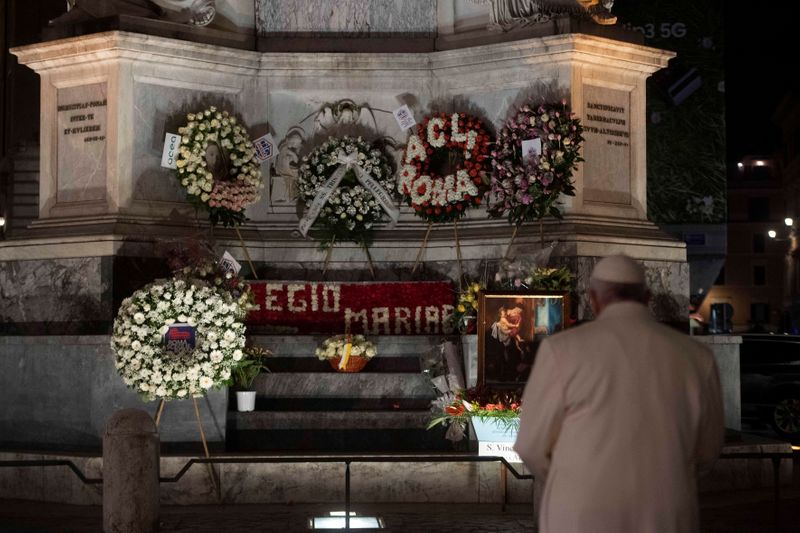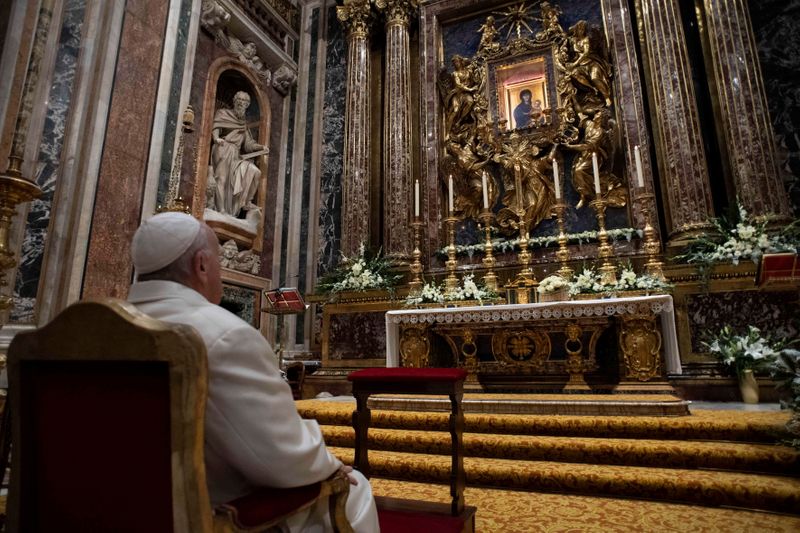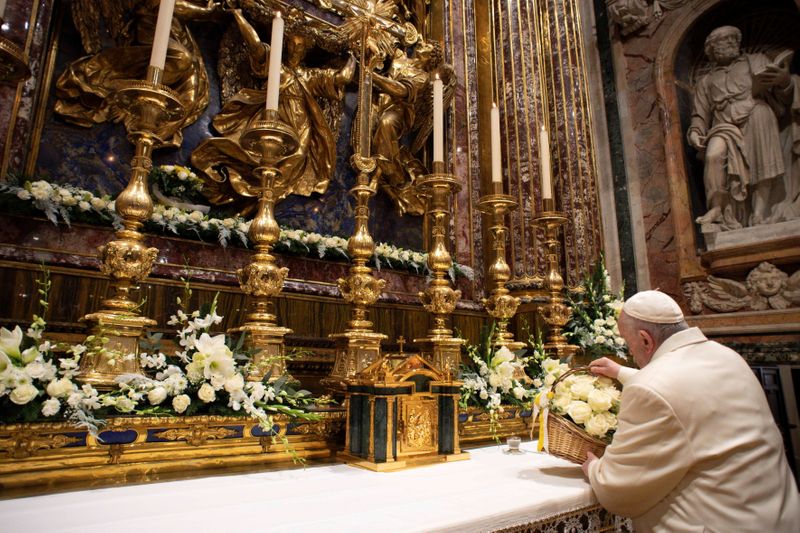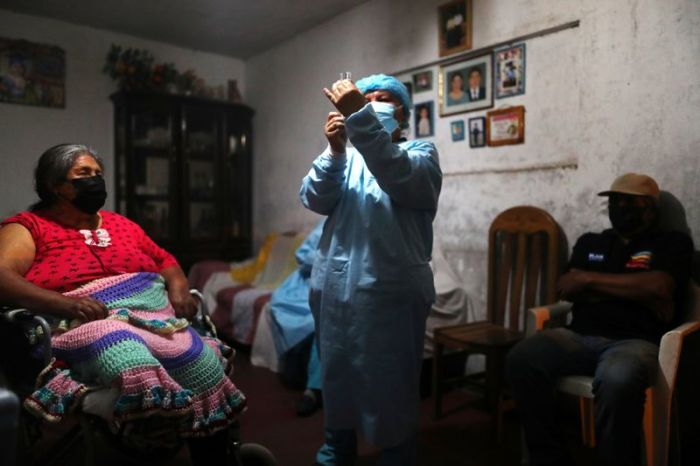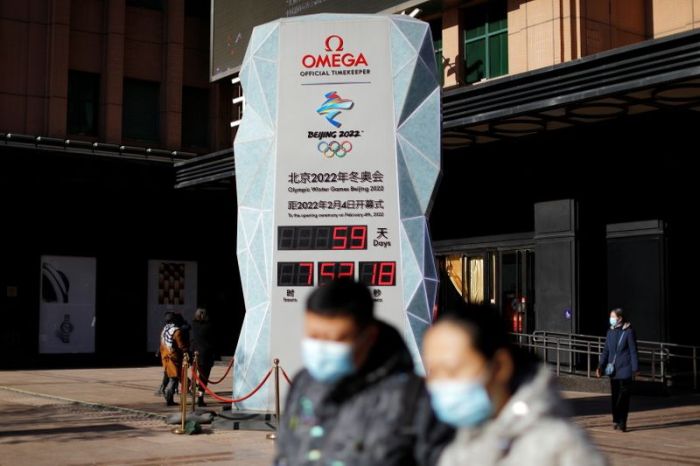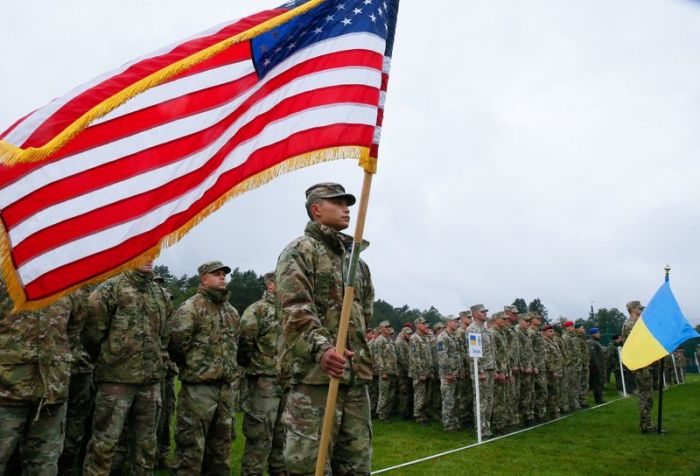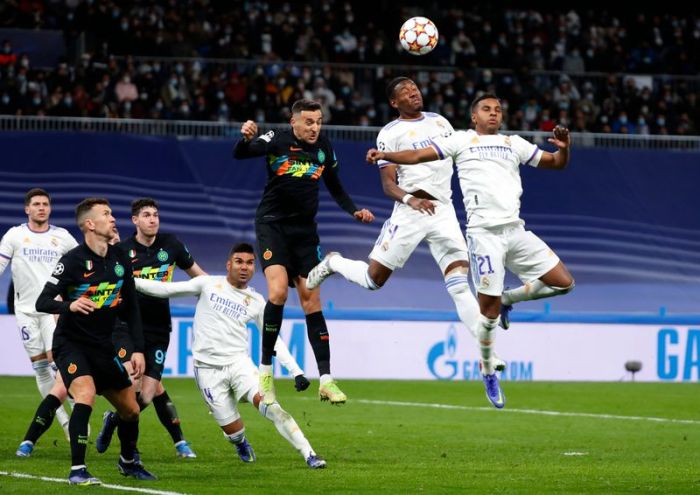ROME (Reuters) – Pope Francis made a private pre-dawn visit to a Rome religious landmark on Wednesday for the second year after a public service was again cancelled because of the pandemic and decried the “stone hearts” of those not moved by the suffering of migrants.
Francis, wearing a full-length white overcoat against the cold, arrived near Rome’s Spanish steps before 6:15 a.m. (0515 GMT), and stayed for 10 minutes. He prayed and placed a basket of white roses at the base of a 12-metre column bearing a statue of the Madonna.
Dec. 8, the Feast of the Immaculate Conception, is a national holiday in Italy and some other countries of Catholic tradition.
For the second consecutive year, Francis was forced to cancel an open air public service at the base of column that would have attracted thousands of people, increasing the possibility of contagion.
A Vatican statement said he had prayed for healing the victims of COVID-19, war and climate change, and asked the Madonna to “melt the stone hearts of those who put up walls to keep other people’s pain away from them”.
Later, addressing people in St. Peter’s Square for his noon address on the holiday, Francis spoke of his trip to Cyprus and Greece, which ended on Monday and whose central theme was migration.
“Before history and before the faces of those who emigrate, we cant keep silent, we can’t look the other way,” he said.
“Please, let us look into the eyes of the people we meet who have been cast aside, let us allow ourselves to be moved by the faces of the little ones, children of desperate immigrants,” said the pope, who visited the Greek refugee island of Lesbos.
“Let their suffering be carved into us to shake us out of our indifference. Let us look at their faces to wake us from the sleep of routine,” he said.
During the trip, he condemned the exploitation of migrants for political purposes, branded the global indifference to their plight the “shipwreck of civilisation” and lamented that Europe was in “the era of walls and barbed wire”.
(Reporting by Philip Pullella; Editing by Edmund Blair and Alison Williams)

